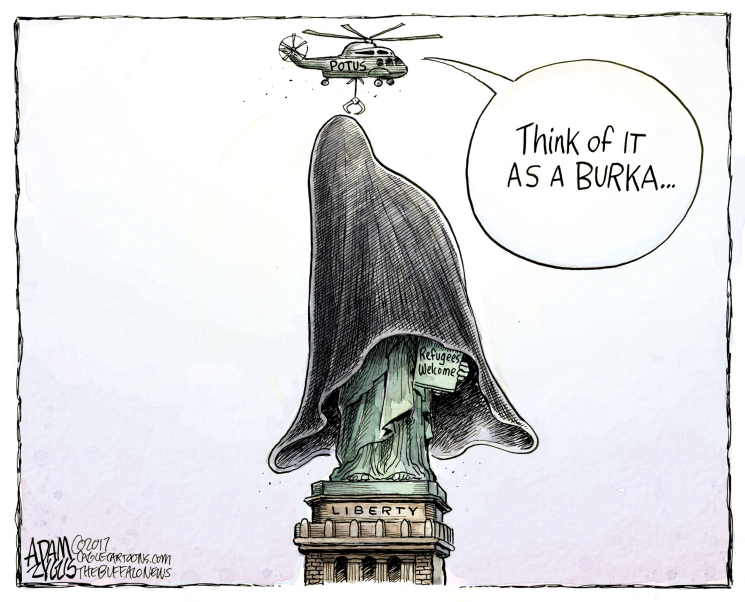Refugee Industry Heads to Capitol Hill
by Joe Guzzardi
Aided by a favorable Supreme Court decision, President Trump wants ever-fewer refugees. To the contractors' dismay, last year President Trump threw out 5,000 as his recommended cap. As of July 1, 2018, the State Department has admitted 16,229 refugees, a pace well below this year's 45,000 ceiling.
With the October 1 deadline looming for the president to make his annual determination on the FY 2019 refugee ceiling, the stakes are high for the nine federal contractors. Lower refugee totals put at risk volags' substantial cash flow that includes $1,950 for each refugee and each child with the contractor pocketing $750 in federal and state grant money, as well as other perks. To protect their monetary interests, the volags gathered on Capitol Hill this month to lobby for higher refugee totals.
Six of the nine volags are religious-based groups. By lobbying on Capitol Hill, they ignore the church-state separation principle. When Thomas Jefferson, James Madison and other Founding Fathers wrote about religious liberty's importance, they also condemned church interference in federal policy. Moreover, the IRS specifically prohibits churches and other nonprofits from engaging in political activity like lobbying. The IRS code that pertains to 501(c)(3) volags states that they must completely refrain from political campaigning.
Yet in his August 3 op-ed published in the widely read and influential news magazine, The Hill, Rev. John McCullough, Church World Service CEO and president wrote a scathing commentary that attacked President Trump's long-standing wish for fewer refugees, a sentiment many Americans share.
David Robinson, the State Department's former Refugee Bureau acting director, shared his from-the-front perspective. Robinson wrote that "the federal government provides about 90 percent of its collective budget" and its lobbying umbrella "wields enormous influence over the Administration's refugee admissions policy. It lobbies the Hill effectively to increase the number of refugees admitted for permanent resettlement each year... . If there is a conflict of interest, it is never mentioned... .The solution its members offer to every refugee crisis is simplistic and the same: increase the number of admissions to the United States without regard to budgets... " Note the repeated references to lobbying even though the law prohibits it.
Like other federal immigration legislation, the 1980 Refugee Act and its consequences went unchallenged until the current administration. Proving the folly of never bucking the status quo, Refugee Resettlement Watch's Ann Corcoran wrote that nearly four decades after the last American left Vietnam, the U.S. still accepts Southeast Asian refugees. More than 1.5 million have entered and contributed to nonrefugee chain migrants.
Congress should turn its attention to the hard math behind refugee resettlement: refugees immediately access food stamps, public housing, cash assistance, health care and child care. The Department of Health and Human Services doles out approximately $1.5 billion in grants to state and local agencies, schools, and nonprofits for refugee-oriented legal advocacy, language education, mental-health services and domestic-violence prevention.
Continuing refugee business as usual is a mistake; resettlement contractors profit, while the American communities where refugees are relocated struggle through difficult transition periods. The multi-millions in dollars the U.S. spends domestically on refugee programs would go 12 times as far if distributed in refugees' home regions to provide for their shelter and care until they can safely return home. No nation including the U.S. can indefinitely accept the world's displaced populations.
-
Joe Guzzardi is a Progressives for Immigration Reform analyst who has written about immigration for more than 30 years. Contact him at [email protected].